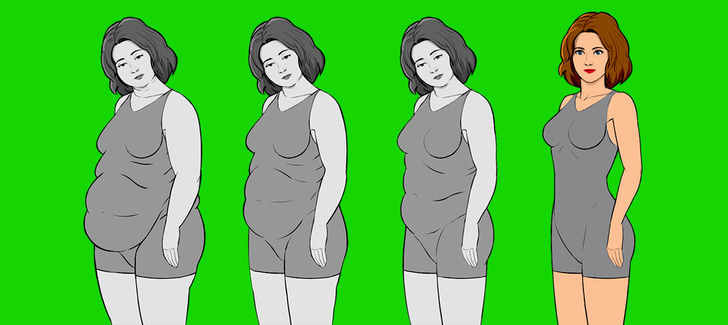I Didn’t Allow My MIL in the Delivery Room — Now She’s Out for Revenge

Many women try hard to achieve a small waist. But doing a bunch of crunches isn’t always going to cut it. In fact, some abdominal exercises actually enlarge the waist. How can you achieve results, avoid mistakes, and learn effective exercises to get the shape you want?
Bright Side has collected some great tips from experienced coaches to find out how to finally get a thinner waistline.
Indeed, the look of a person’s waist depends on the type of figure they have. Depending on if you have an ’hourglass’ or ’pear’ body type, you may be able to maintain your shape even when you gain weight. ’Ruler’ and ’apple’ body types who gain extra weight tend to get shapely in their upper body parts.

Coaches collectively say that these 3 things are harmful to any waistline:
A healthy waist does not appear by itself; it is the result of taking good care of the body. But there are ways to make it appear more shapely depending on how you choose to dress and carry yourself.
Shaping the waist means working on abdominal muscles. But, as you probably know, working on it doesn’t guarantee getting rid of the fatty layer. Therefore, it’s necessary to create a calorie deficit with the help of:
A trained muscular corset and proper posture visually stretch and slim the silhouette. Achieve a slimmer mid-section by:
It is important to remember that not all abdominal exercises are helpful for the waist. In fact, some actually expand it. In order to form an elegant waist, you need to pay attention to the straight abdominal muscle of the press while “pumping” oblique muscles, which lead to an extension of the waist.
At the same time, stretching the side muscles in various static twists during yoga or pilates can form beautiful body lines.
This set of exercises is best performed in the written order, three times a week. The best time to workout is in the morning hours.
Initial position: lying on the back, legs are bent at the knees, arms down on both sides of the body. This exercise should be done on an empty stomach.
Take a deep breath, exhale through the mouth releasing the air from your lungs as much as possible while pressing the front wall of the abdomen into the spine. In this position, gravity helps you. Stay in this position for 15 seconds and relax. Gradually, you can bring the duration of “expiration” to one minute, as long as you feel comfortable doing so.
Reps: 3–5 times.
Workout duration: 2 minutes or more.
Initial position: stand with your feet shoulder-width apart.
The goal of the exercise: you should feel the muscles of your waist stretching. Bend forward so that you can touch the floor and stay in this position for a while. After that bend backward hold the arms at your waist.
Reps: 15–20 times.
Workout duration: 2 minutes or more.
Initial position: lie down on the floor, slightly bend your knees.
The main feature of this exercise is its fast pace. Lift your upper body off the floor and quickly return to the initial position. Make sure that your abdominal muscles don’t relax during the exercise.
Reps: 3 sets of 12–15 reps.
Workout duration: 2 minutes or more.
Initial position: hold the body on toes and elbows (or hands).
An important notice: keep your back and legs straight without sagging or arching.
Reps: 2–3 times, 30 seconds each. It’s recommended to change the type of the plank while performing the exercise. The first set can be done on hands, the second on elbows, the third can be a side plank.
Workout duration: 2 minutes or more.
Initial position: stand with your feet 30-35 cm apart, keep your arms on your hips.
Breathe in, breathe out, draw your belly in and take a position as if you are going to sit. Lower the left hand along your body, lunge the right leg to the side keeping the right arm stretched to the same side. Slightly bend your body to the right, staying for eight seconds in this position. Make sure that you don’t bend forward or backward, only to the side.
Reps: 2–3 times for each side.
Workout duration: 1 minute.
Which of thee exercises work best for you? We’d love to hear about them in the comments!











